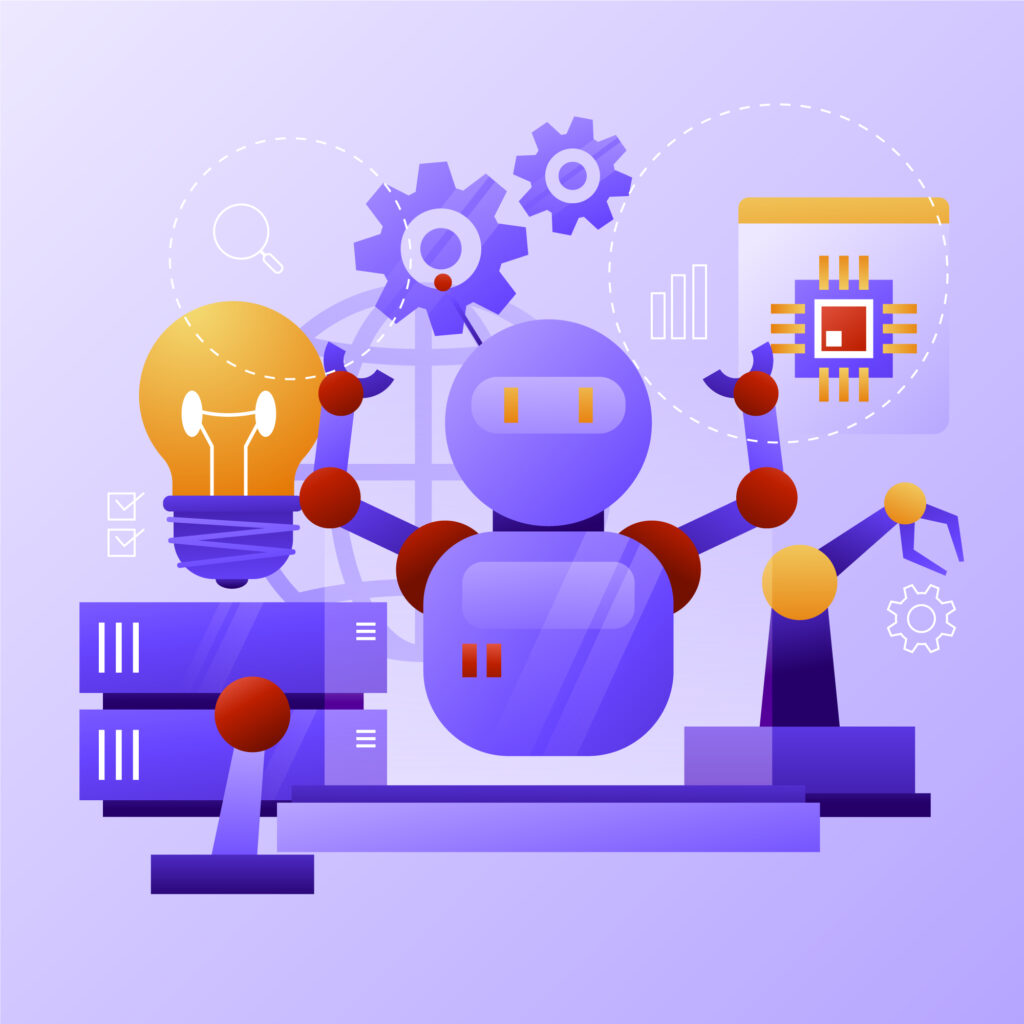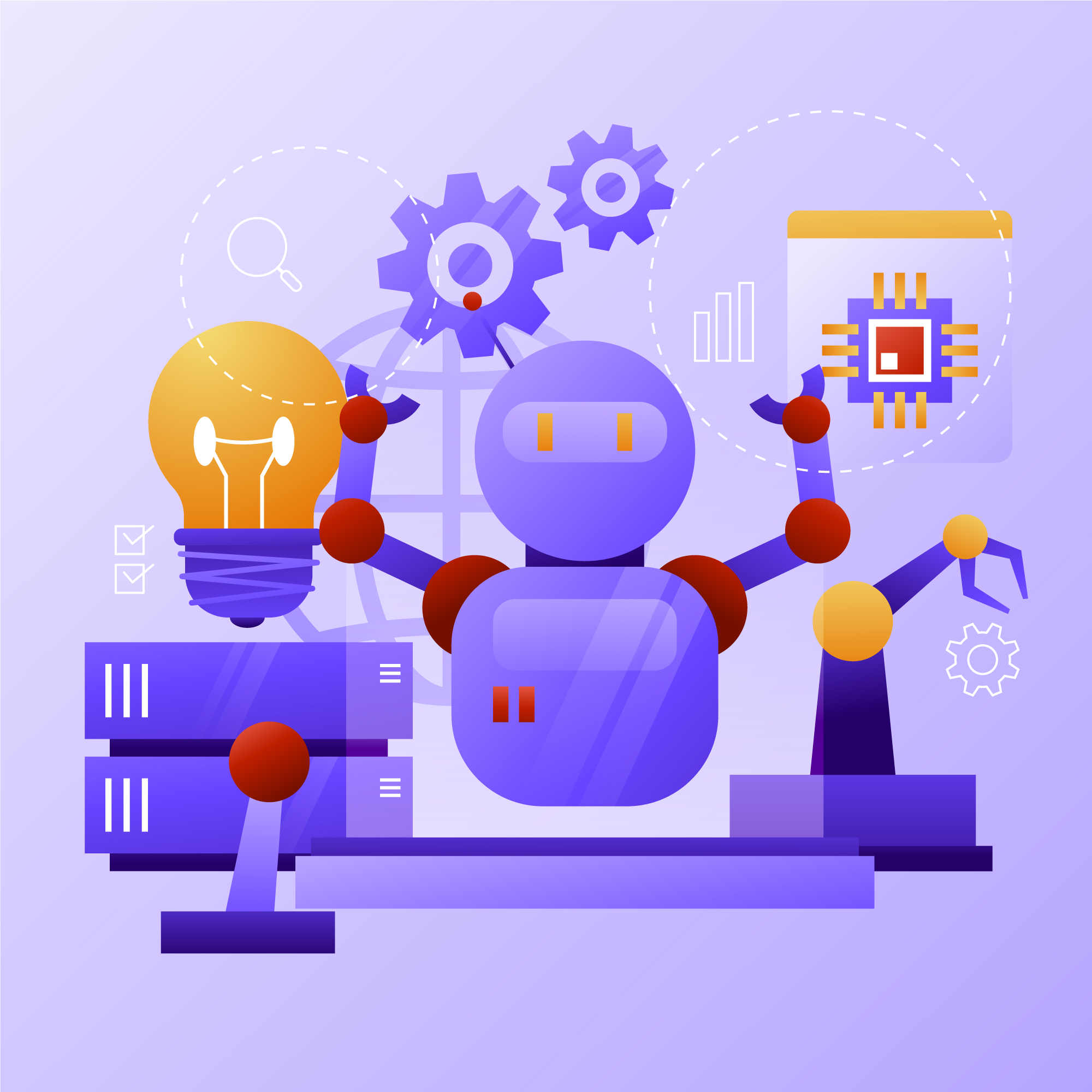In the ever-evolving landscape of marketing, staying ahead of the competition and effectively reaching target audiences is paramount. Marketers are constantly seeking innovative tools and strategies to enhance their campaigns and drive better results. One such tool that has revolutionized the marketing industry is Artificial Intelligence (AI). In this article, we will explore the top benefits of AI for marketers and provide insights into the current state of AI data in marketing.

AI Benefits for Marketers: A Game Changer
Artificial Intelligence has emerged as a game-changer for marketers, offering a wide range of advantages that can significantly impact the success of marketing campaigns. From data analysis to personalization and automation, AI has the potential to transform the way businesses approach marketing. Let’s delve into some of the key benefits:
1. Enhanced Data Analysis
Data is the lifeblood of modern marketing, and AI excels at processing and analyzing vast amounts of data at incredible speeds. Marketers can use AI-powered tools to gain deep insights into consumer behavior, preferences, and trends. This data-driven approach allows for more informed decision-making and the ability to adapt strategies in real-time.
AI algorithms can identify patterns and correlations within data that might be too complex for human analysis. This enables marketers to optimize their campaigns for better targeting and higher conversion rates. With AI, marketers can unlock the power of big data, making it a valuable asset in shaping marketing strategies.
2. Improved Personalization
Personalization is a cornerstone of effective marketing. AI enables marketers to create highly personalized experiences for their customers. By analyzing individual customer data and behavior, AI systems can deliver tailored content, recommendations, and product offerings.
For example, e-commerce websites can use AI algorithms to recommend products based on a customer’s past purchases and browsing history. Email marketing campaigns can be personalized with dynamic content that adapts to each recipient’s preferences. Such personalized approaches lead to higher engagement and conversion rates, ultimately driving revenue growth.
3. Precise Targeting
AI benefits marketers by providing advanced targeting capabilities. Marketers can use AI-driven insights to identify their ideal customer profiles and create highly targeted advertising campaigns. AI also helps in segmenting audiences based on various factors, such as demographics, behavior, and interests.
The result is more efficient advertising spend. Marketers can ensure that their ads are shown to the most relevant audience, reducing wasted impressions and improving the return on investment (ROI) for their campaigns. AI-powered advertising platforms like Google Ads and Facebook Ads offer features that automatically optimize ad targeting to reach the most promising prospects.
4. Marketing Automation
Automation is another significant benefit of AI for marketers. Routine tasks such as email marketing, social media posting, and data analysis can be automated with AI-powered tools. This frees up valuable time and resources for marketers to focus on strategic activities and creative aspects of their campaigns.
Marketing automation also enables marketers to implement drip campaigns, lead nurturing, and customer journey mapping with ease. AI-driven chatbots provide 24/7 customer support, enhancing the customer experience and ensuring that inquiries are addressed promptly.
5. Predictive Analytics
Predictive analytics is a powerful application of AI in marketing. Marketers can leverage AI algorithms to forecast future trends, customer behaviors, and campaign performance. By analyzing historical data, AI can help identify potential opportunities and threats, allowing marketers to proactively adjust their strategies.
Predictive analytics can also assist in lead scoring, helping marketers prioritize leads with the highest conversion potential. This ensures that sales teams focus their efforts on the most promising prospects, leading to increased sales efficiency.
The State of AI Data in Marketing
As AI continues to transform the marketing landscape, it’s essential to take a closer look at the current state of AI data in marketing:
1. Data Quality and Privacy
While AI offers tremendous benefits, data quality and privacy remain critical concerns. Marketers must ensure that the data used to train AI models is accurate and up-to-date. Additionally, with increasing regulations such as GDPR and CCPA, maintaining data privacy and complying with legal requirements is essential.
Marketers must adopt robust data governance practices to protect customer data and build trust with their audience. AI can help in automating data privacy compliance tasks, but it also requires responsible handling and ethical considerations.
2. Integration Challenges
Many marketers face challenges when integrating AI into their existing marketing technology stack. Integrating AI-powered tools with existing systems and databases can be complex and time-consuming. However, the benefits of seamless integration are significant, as it allows for a unified view of customer data and streamlined workflows.
Marketers should work closely with IT teams and choose AI solutions that offer compatibility with their current infrastructure. This ensures a smooth transition and maximizes the value of AI investments.
3. Skill Gap
AI adoption in marketing often requires new skill sets. Marketers must acquire expertise in data analysis, machine learning, and AI tool usage. Closing the skill gap is essential to fully leverage AI benefits.
Training and upskilling programs can help marketers acquire the necessary knowledge and skills to effectively utilize AI in their campaigns. Many online courses and certifications are available to bridge this gap.
The Road Ahead
As AI continues to advance, the future of marketing looks increasingly exciting. AI-powered chatbots, voice search optimization, and augmented reality marketing are just a few examples of emerging trends that will further reshape the marketing landscape.
To harness the full potential of AI benefits for marketers, businesses must invest in ongoing education and keep a pulse on the latest AI developments. While there are challenges to overcome, the advantages of AI in marketing are undeniable. It’s a transformative technology that allows marketers to be more data-driven, customer-focused, and efficient in their efforts.
In conclusion, AI benefits for marketers are vast and game-changing. Enhanced data analysis, improved personalization, precise targeting, marketing automation, and predictive analytics are just some of the advantages that AI brings to the table. However, marketers must also be mindful of data quality, privacy concerns, integration challenges, and the need for skill development. The state of AI data in marketing is evolving rapidly, and those who embrace AI with responsible and strategic planning are poised to thrive in the ever-evolving marketing landscape. As AI continues to evolve, its role in marketing will only become more prominent, making it a crucial tool for marketers looking to stay ahead in the competitive world of marketing.
Related Articles:
1. AI in Marketing: Benefits, Use Cases, and Examples
2. Top 7 Advantages of Using AI in Digital Marketing
3. 5 Essential Benefits of AI for Digital Marketers




